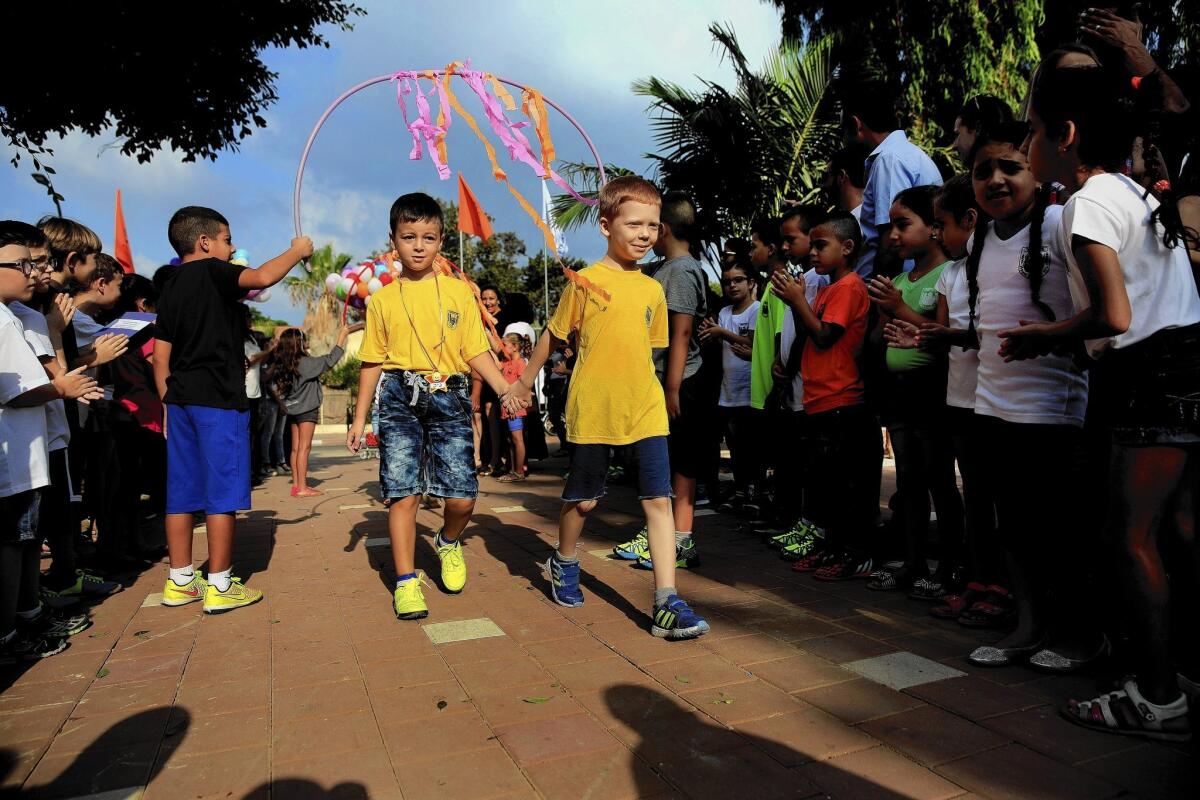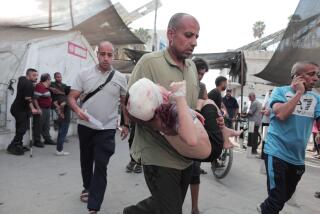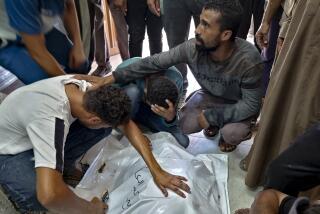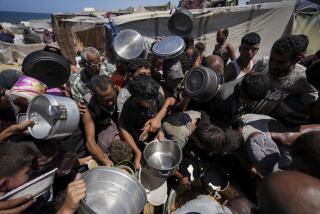Emotions mixed as Israeli children return to school after Gaza war

Decked with balloons and cheerful signs, Israeli schools opened their gates Monday as 2 million children returned to school in a welcome sign of normality after the war with Gaza militants.
But this was not an entirely normal first day of school.
Though the return to school is always something of a national holiday, emotions were mixed this year, with pupils, parents and educators relieved to resume routines while still sorting through the trauma of a violent summer.
Regular curriculum was suspended for the beginning of the school year and security remained a concern, although a cease-fire with Palestinians appeared to be holding. Adding to the sense of unease was the fact that school funding was cut by 2% to help pay for the 50-day war, which claimed the lives of 72 people on the Israeli side, most of them soldiers.
The Gaza Strip is reeling from a far larger loss of more than 2,000 lives, mostly civilians, according to international agencies. It will be weeks before the school year can begin in Gaza, where at least 220 schools were damaged or destroyed and where many still serve as shelters for Palestinian families displaced by the conflict. In the meantime, half a million Gaza students will be out of school.
In Israel, rather than hitting the books immediately, students will be eased back with two weeks of discussions about personal experiences and “relaxing activities, facilitating emotional expression,” the Education Ministry said. Special, if discreet, attention was given Monday to pupils whose families lost loved ones in the fighting.
Politicians flocked to schools to welcome students, especially in the southern parts of the country that were hardest hit by rocket fire.
Schoolchildren in the town of Netivot peppered Communications Minister Gilad Erdan with tough questions: What would happen if Israel were to topple the militant group Hamas? Why does Israel provide electricity to Gaza?
“These are questions of political science university students, not children returning from summer vacation,” he told Israeli news media.
At age 5, kindergartner Daniel Neardea of Rishon LeZion recognizes the different sounds of incoming rockets and Iron Dome interceptors and can identify Israel’s chief of staff and the top Hamas political leaders.
Describing the summer as “loud,” his mother, Enav Neardea, said her children mostly took the rockets and sirens in stride, even when they disrupted their activities at the playground or swimming pool. “I guess they understand this is part of their lives now,” she said over the counter of her cafe in the town of Rehovot. She said she was relieved to have them back in school.
Looming over the return to school Monday was the financial cost of the war. The Cabinet decided Sunday on a 2% across-the-board cut for all government ministries — except defense.
With the second-highest annual budget after defense, the Education Ministry stands to give up some $140 million, providing one-quarter of the total boost in the defense budget, as well as urgent assistance to the communities closest to the border with Gaza.
Education Minister Shay Piron insisted Monday that the move would “not harm core curricula, teaching hours or big programs.” He added that the cuts were coming from additional funding the ministry had been expecting, so the result would be break-even funding.
Still, many parents argue that public education is underfunded in Israel, with per-pupil spending well below international averages for developed countries, as measured by the Organization for Economic Cooperation and Development, and parents forced to dig into their pockets for extra spending for their children’s schools.
“We will feel the impact directly,” said Sophie Hod, a policewoman and mother of two, who said parents had been notified that school payments would go up. “I suppose there’s not much choice,” Hod added, noting that tourism, business and most other economic sectors were suffering.
“There’s always some urgent need that puts off reforms,” she said. “Everything takes second place to security, but that’s how it must be here for now.”
In a series of interviews over the weekend, Israeli Prime Minister Benjamin Netanyahu acknowledged the challenge of balancing the country’s ever-growing defense needs with maintaining an overall strong economy and solid government services. However, he said, “security must come first.”
As unpopular as tax hikes are, some politicians criticized the budget cut, saying the citizens who need government services most will be paying the costs and that a temporary tax would be a fairer way to offset war costs.
Environment Minister Amir Peretz, who voted against the cut, said it would hit weaker Israelis “directly in the pocket.” While it is true that the government promised to refrain from new taxes, he said, it should acknowledge that an unexpected event had taken place and “have enough courage to impose a temporary tax that would spread the burden more equally.”
Sobelman is a special correspondent.
More to Read
Sign up for Essential California
The most important California stories and recommendations in your inbox every morning.
You may occasionally receive promotional content from the Los Angeles Times.









